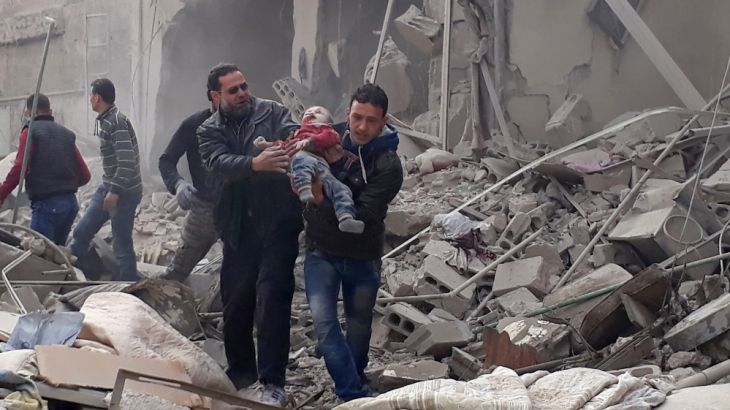
Is Syria’s de-escalation deal done?
More than 100 people killed in just one day in Syria’s rebel-held areas of Eastern Ghouta and Idlib.
The truce was supposed to bring temporary relief to hundreds of thousands of Syrians suffering from severe food and medicine shortages.
Instead, Russian and Syrian government forces launched a new wave of air raids and shelling, plunging besieged rebel-held areas into even more despair.
Activists have described it as one of the most violent days in the nearly seven-year conflict with more than 100 people killed.
The regions targeted by the Syrian government and its Russian ally are supposed to be in the so-called de-escalation zones, part of a Russian-led ceasefire deal for territory held by the rebels.
The UN says the increasing violence is making “a mockery” of these zones and has called for a month-long truce to allow the delivery of aid.
The four de-escalation zones were created after several rounds of talks in Kazakhstan’s capital Astana. Russia, Turkey and Iran, who signed the deal, act as guarantors.
So what exactly triggered the latest round of violence? And who can stop it?
Presenter: Folly Bah Thibault
Guests:
Dmitriy Frolovskiy – political analyst and researcher of Russian affairs in the Middle East
Hisham Jaber – retired Lebanese army general
Joshua Landis – director of the Center for Middle East Studies at the University of Oklahoma